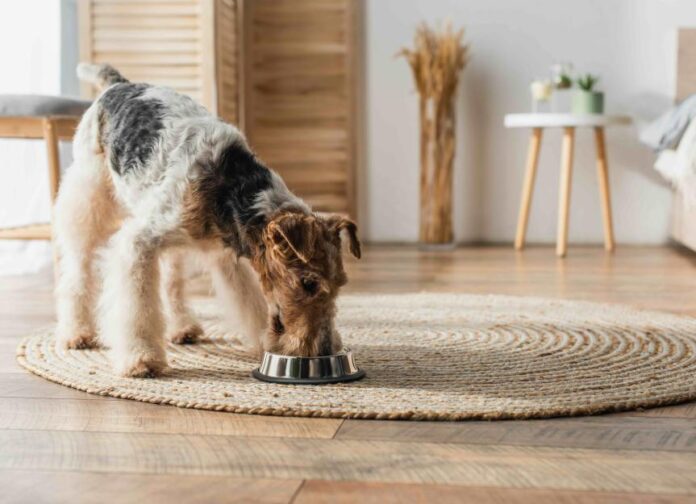Understanding Bland Diets for Dogs With Gastrointestinal Illness
Gastrointestinal (GI) illness, commonly referred to as gastroenteritis, is a widespread issue affecting dogs. This condition can lead to symptoms such as diarrhea, vomiting, and a decline in appetite. During these times, offering a bland diet can support your dog’s recovery at home. However, it’s crucial to know when to utilize this approach and when to contact a veterinarian. This article provides essential insights into bland diets for dogs.
Key Takeaways
- A bland diet is beneficial for dogs experiencing GI upset.
- There are both commercial and homemade bland diet options.
- While homemade diets can be used short-term, chronic GI issues may require commercially formulated foods.
What Is a Bland Diet for Dogs?
A bland diet is designed to be easy for dogs to digest, providing the necessary nutrients during periods of stomach upset. These diets facilitate nourishment without exacerbating gastrointestinal symptoms. You can find bland diets in commercial formulations as kibble or wet food, or create a homemade version.
Key Attributes of a Bland Diet
Depending on your dog’s specific symptoms or diagnoses, a bland diet may include the following attributes:
Highly Digestible
Highly digestible foods enable dogs to absorb essential nutrients more efficiently. High-quality ingredients and minimal processing are key. Options include specific dog kibbles such as Hill’s® i/d Digestive Care or Royal Canin® Gastrointestinal.
Lean Proteins
Common lean proteins used in bland diets include chicken, turkey, cottage cheese, and ground beef, as these are generally well tolerated by dogs recovering from stomach upset.
Carbohydrates
Carbohydrates like plain white rice, potato, brown rice, barley, or whole wheat pasta can bulk up the diet and help absorb excess water in cases of diarrhea.
Low Fat
Foods low in fat are optimal for dogs suffering from pancreatitis or chronic GI issues. Long-term adherence to low-fat diets can help prevent relapses in these conditions.
High Fiber
High-fiber foods promote healthy digestion and can benefit dogs experiencing diarrhea, anal gland issues, inflammatory bowel disease (IBD), or diabetes.
Hypoallergenic
For dogs with stomach upset due to food allergies, hypoallergenic diets featuring novel proteins such as rabbit or venison can be beneficial. Options include Hill’s d/d and Royal Canin Selective Protein.
Calorically Dense
Calorically dense diets are vital for dogs recovering from significant illnesses, surgery, or appetite-affecting conditions. Canned foods like Hill’s a/d Urgent Care or Royal Canin Recovery provide concentrated nutrition in smaller portions.
Veterinary Diets vs. Homemade Bland Diets
Traditionally, homemade bland diets such as chicken and rice were the go-to for dogs with gastrointestinal illnesses. However, research conducted by veterinary nutritionists has led to the availability of exceptional commercial diets specifically tailored to address these issues. While homemade options remain an alternative for short-term use, prescription diets can supply necessary vitamins and minerals absent in home-cooked meals.
“Compared to home-cooked chicken and rice, a prescription diet for dogs with stomach upset provides the bland ingredients needed alongside essential vitamins and minerals.”
Long-term feeding of homemade diets can result in nutritional deficiencies, which may lead to additional health problems. Therefore, always consult your veterinarian regarding short-term use of homemade diets and their potential impacts.
What Is the Best Diet for Dogs With Sensitive Stomachs?
Dogs with sensitive stomachs can significantly benefit from specially formulated diets. This condition is not always linked to a medical illness and can lead to symptoms such as vomiting or diarrhea after consuming new or inappropriate foods.
The optimal dog foods for sensitive stomachs consist of:
- Hill’s Sensitive Stomach and Sensitive Skin: Offers a variety of flavors tailored to different life stages.
- JustFoodForDogs®: Fresh options like chicken and rice, balanced with essential nutrients and gentle on the digestive system.
- Purina® Pro Plan® Sensitive Skin and Stomach: Includes flavors like lamb and oatmeal, and uses oatmeal which is gentle and digestible.
- Royal Canin Digestive Care: Available in both wet and dry forms, featuring probiotics for improved digestion.
How to Feed Your Dog a Bland Diet
When transitioning to a bland diet, dogs may require encouragement to eat. Consider the following methods:
- Hand-feeding your dog.
- Feeding in a calm, quiet environment.
- Soaking food in water for easier consumption.
- Syringe-feeding, if necessary.
- Add low-fat, low-sodium broth for improved palatability.
- Incorporate lean meal toppers, pumpkin, or probiotics.
Always consult with your veterinarian regarding feeding practices and portion sizes, especially with homemade diets.
Duration of a Bland Diet for Dogs
The length of time your dog should remain on a bland diet will depend on their recovery speed and underlying conditions:
- If symptoms resolve quickly (within 48 hours), your dog can return to their regular diet.
- If symptoms persist beyond 48 hours, consult your veterinarian for further evaluation.
- In cases with diagnosed chronic conditions, the bland diet may need to continue long-term.
Additional Support for Dogs with Upset Stomachs
If symptoms worsen or appetite decreases, hospitalization for IV fluids and anti-nausea medication may be necessary. Utilizing probiotics and fiber supplements can help restore gut health and improve stool consistency. Ensure your dog stays hydrated and consider maintaining a food journal to track symptoms and dietary intake.
Limit food intake and refrain from giving treats during this recovery period to avoid aggravating GI upset. With proper care and nutritional support, your dog should recover swiftly and return to their happy, healthy self.











